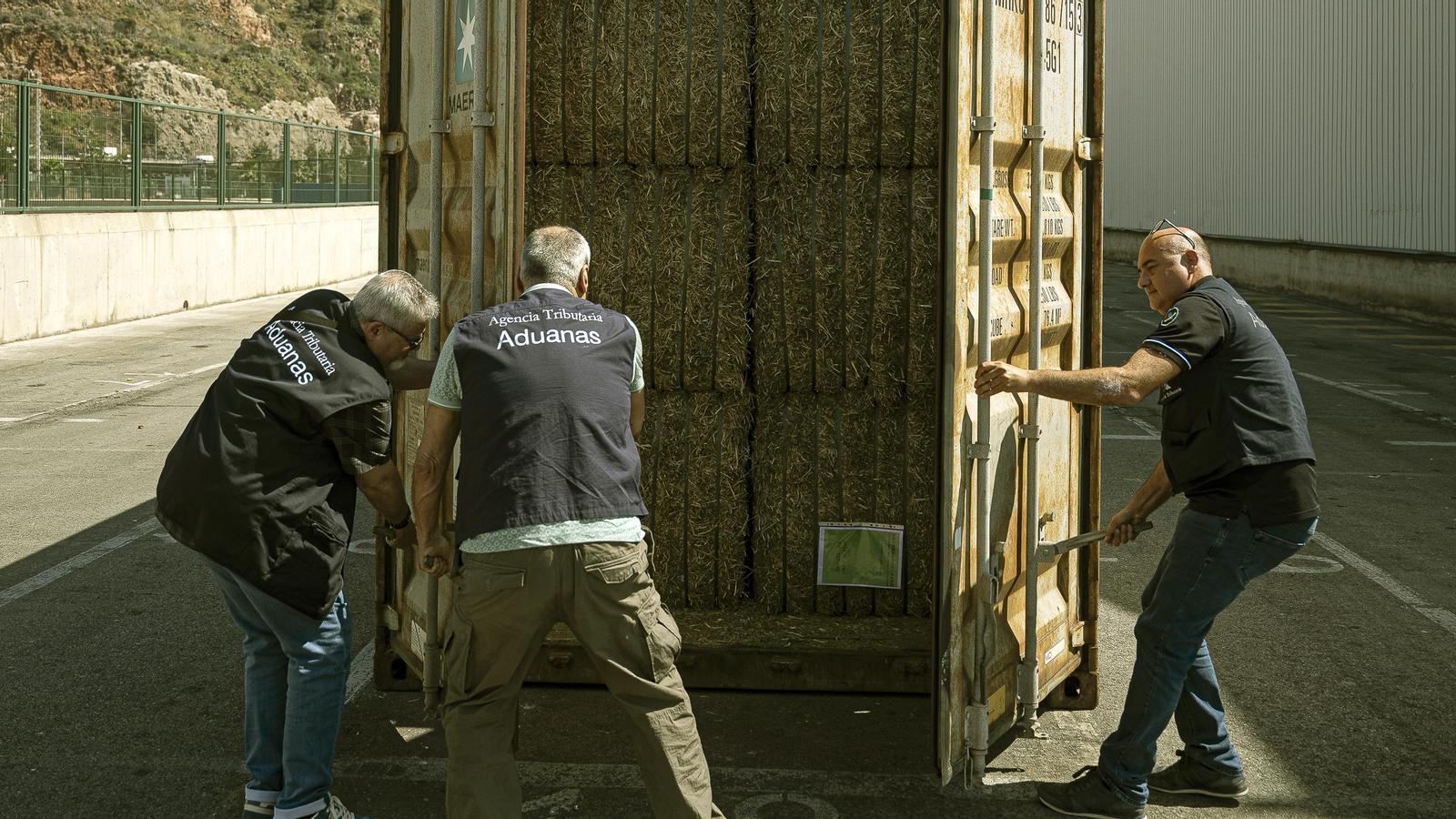An "alarming" increase in drug trafficking in Barcelona, with 70% more legal proceedings, almost double that of Madrid.
The Prosecutor's Office warns that cocaine trafficking has grown "extraordinarily" in Catalonia.

BarcelonaThe Prosecutor's Office is calling for the "alarming" increase in drug trafficking in the Barcelona area. Last year, there were 71.49% more drug trafficking cases than in 2023, and those related to hard drugs grew the most. The number of legal proceedings rose from 4,234 in 2023 to 7,261 in 2024, a figure that places Barcelona as the province with the most cases in the entire state and almost double that of Madrid, which accumulated 3,891 last year.
The data appears in the annual report of the State Attorney General's Office, published this Friday, and "confirms a very worrying problem," warns the Public Prosecutor's Office. The increase in cases in Barcelona is well above other Catalan regions (0.53% in Lleida, 2.60% in Girona, and 11.03% in Tarragona) and the national average of 23%, which adds to the sustained growth of recent years. In total, there were nearly 29,800 drug trafficking cases across the country last year, among which the Prosecutor's Office highlights an "extraordinary" increase in cocaine trafficking. This substance has been seized mainly in ports, and Barcelona is one of the ones that accumulates the most cases Along with Valencia and Algeciras.
The Attorney General's Office sees three essential factors behind the drug trafficking problem in Catalonia. Two have to do with geography: the coast, with a "commercial port of enormous importance and intense traffic"; and the proximity to the French border, which is the land passage to Europe for both hashish from Morocco and of cocaine entering through the ports and cannabis, which is largely grown in Catalonia. The third key element for the Prosecutor's Office is social "tolerance" or "empathy" regarding cannabis.
In the annual report of the Public Prosecutor's Office, the anti-drug prosecutors of Catalonia warn of the risk of the country going from being a trafficking area to being the main territory for cannabis production. Until now, the seizures of cannabis that passed through Catalonia for sale in other parts of Europe were mainly hashish, but lately this substance has been declining in favor of marijuana grown here. This is reflected in the emergence of the cannabis mulesThis figure gained relevance in the Prosecutor's Office statistics in 2023 with 23 arrests in Barcelona, and last year, fifteen travelers were also arrested trying to board flights to Thailand, the United Kingdom, Denmark, Iceland, the Netherlands, Malta, Hungary, Germany, and Gám.
Plantations and organized crime
Regarding social "tolerance" or "empathy" towards cannabis, the Attorney General's Office warns that "the benevolence with which cannabis plantations are viewed does not correspond to the danger that this activity entails," warns the prosecutor's report. The Public Prosecutor's Office believes that this sympathy is based on widespread consumption, the "trivialization" of consumption and the proliferation of cannabis clubs "that are even promoted as a tourist attraction" in the city of Barcelona and that have led the council to increase restrictions.
Far from it, the Prosecutor's Office describes marijuana cultivation as a "major threat to security" in Catalonia and one that could pave the way for organized crime. In fact, it points out that in the four Catalan regions there have already been cases of confrontations with firearms related to thefts of marijuana plants and leaves, and other serious incidents involving violence, illegal arrests, and "several homicides that clearly reflect a dark reality that has been growing for years."
Proposal to toughen penalties
Drug trafficking is also present in the section of the report that includes the Public Prosecutor's Office's legal reform proposals. One seeks to address the "scandalous increase" in drug plantations. indoor and the power outages they sustain themselves with. The Prosecutor's Office warns that the penalties for marijuana trafficking and electricity fraud are low, which can attract organized groups, and wants to raise them to match those in other European countries. In Spain, electricity fraud is punishable by a fine, and trafficking less than 10 kilos of cannabis would carry a sentence of between one and three years in prison. The Prosecutor's Office proposes an aggravating factor for the crime of electricity fraud so that, when it is linked to plantations owned by organized groups, it carries prison sentences.
The second proposal for legal reform linked to drug trafficking concerns the fuel used by high-speed vessels that transport hashish to the coasts of the State. firecrackers They are the people who transport and store in houses or warehouses that they call daycare centers Large quantities of gasoline are then supplied to these vessels. The Prosecutor's Office warns of the difficulties of criminally prosecuting this key element in drug trafficking logistics due to the difficulty of proving that the gasoline is linked to drug trafficking and the difficulties of classifying this conduct within the wording of the Criminal Code. Therefore, it proposes adding a criminal offense "that simply punishes the possession or transportation of gasoline without complying with the requirements of administrative regulations."
